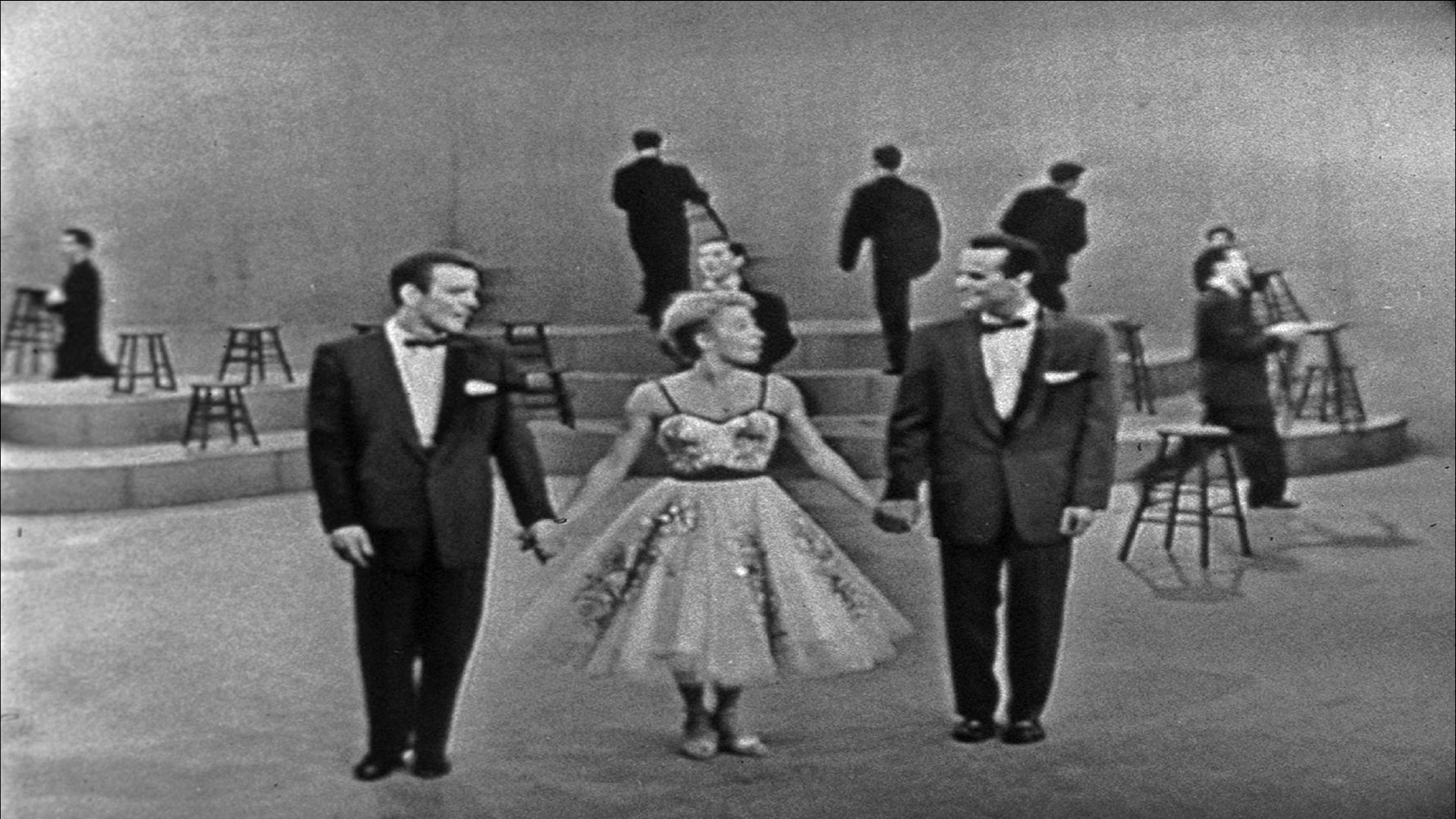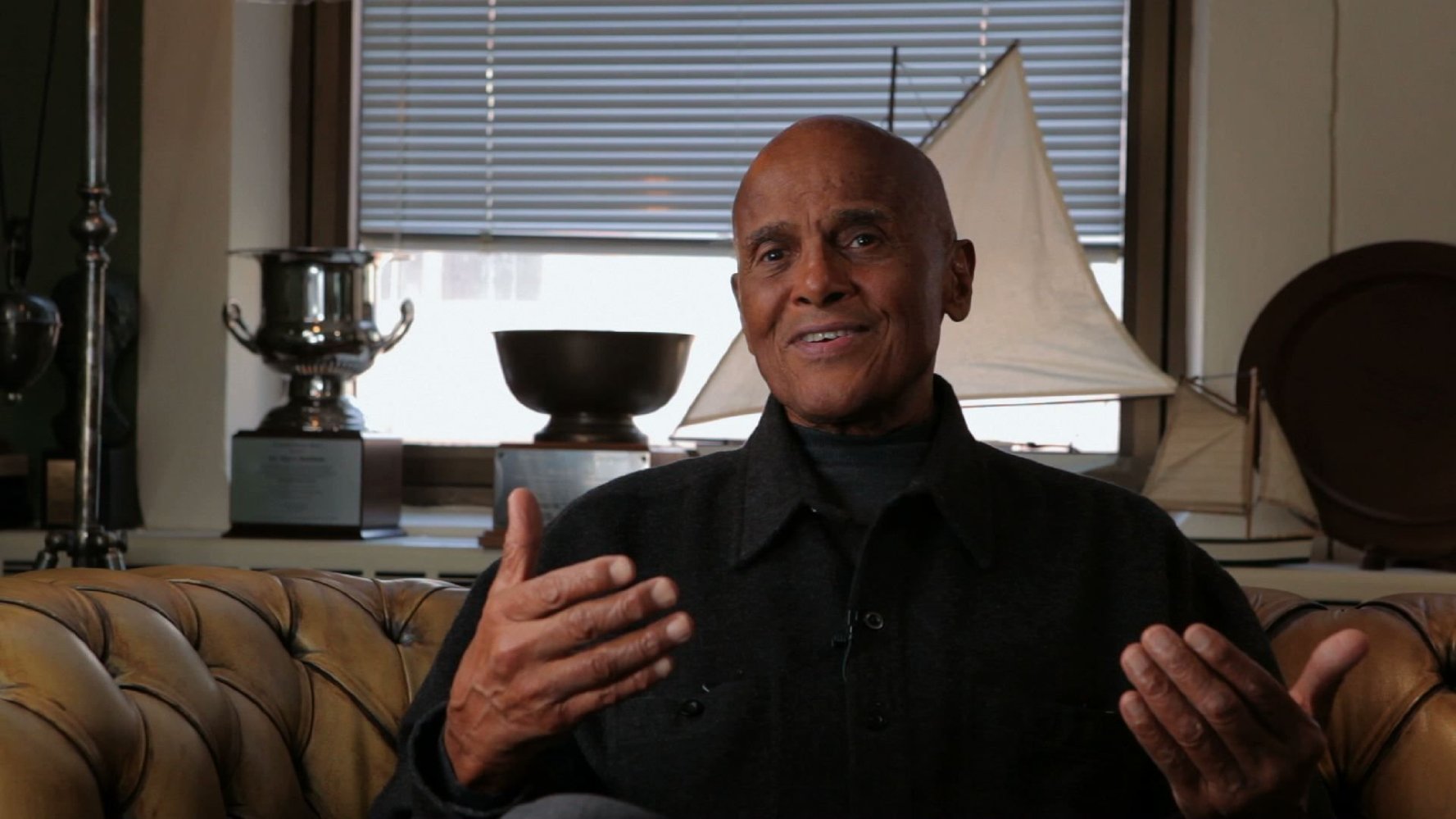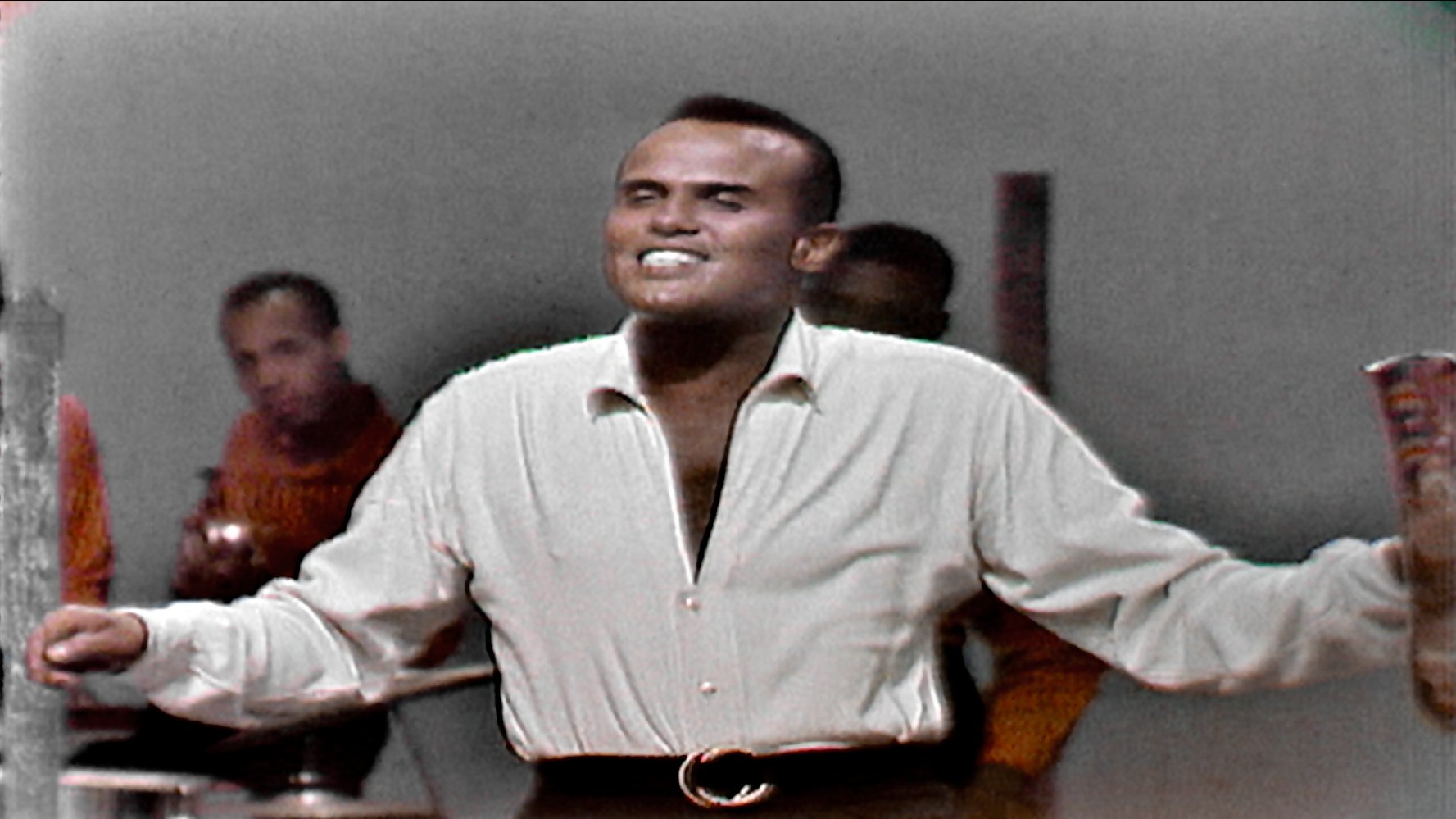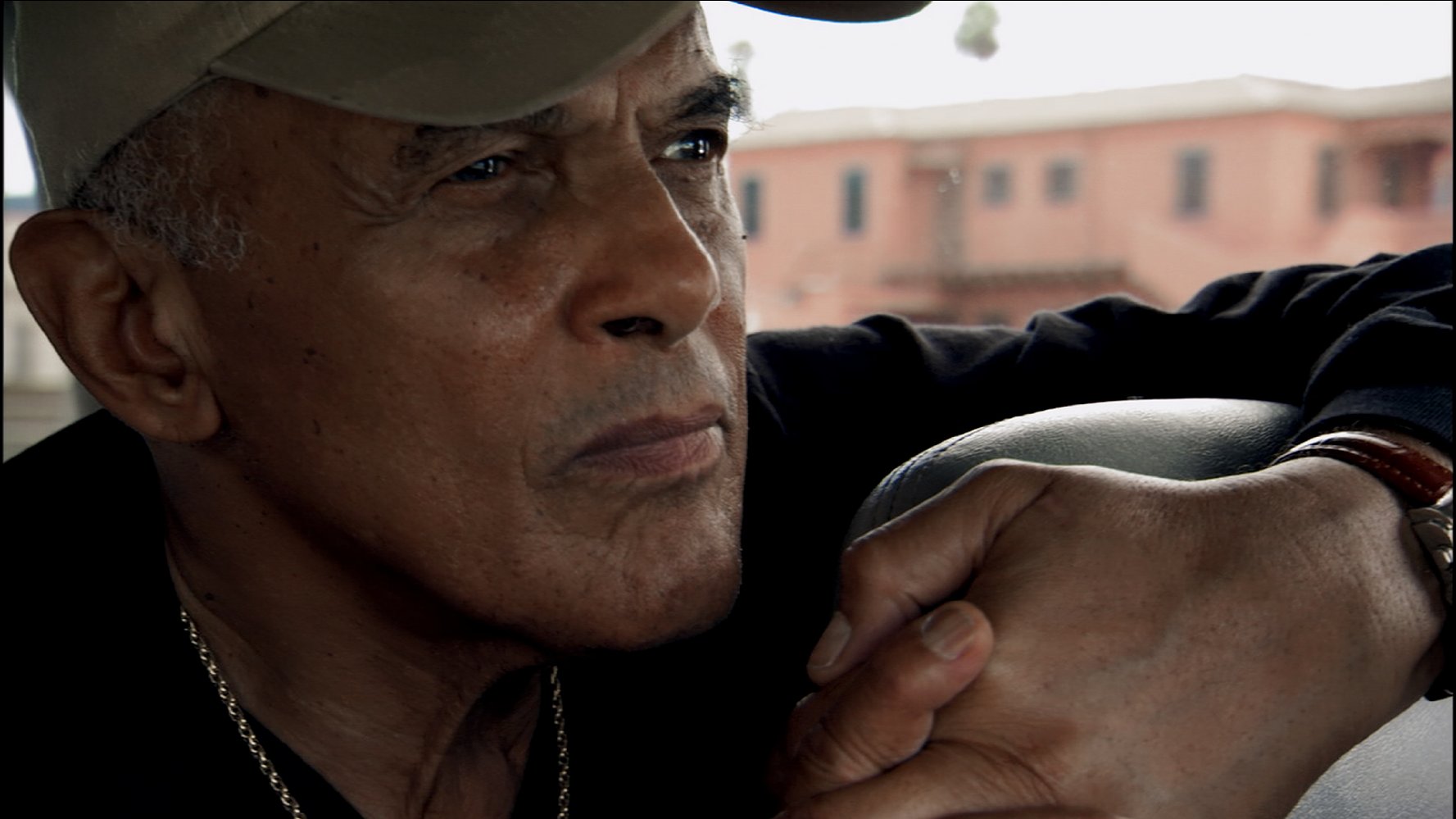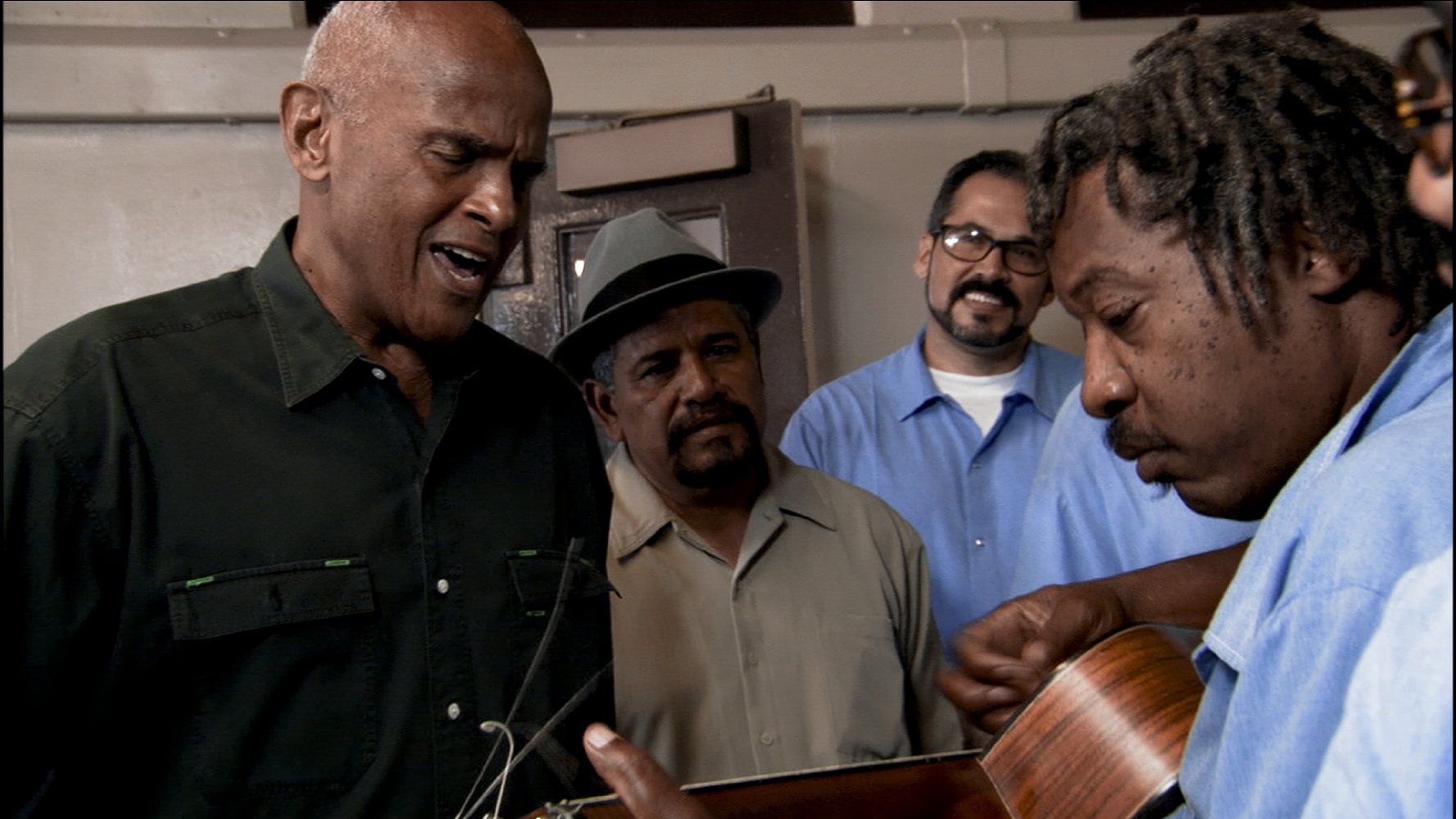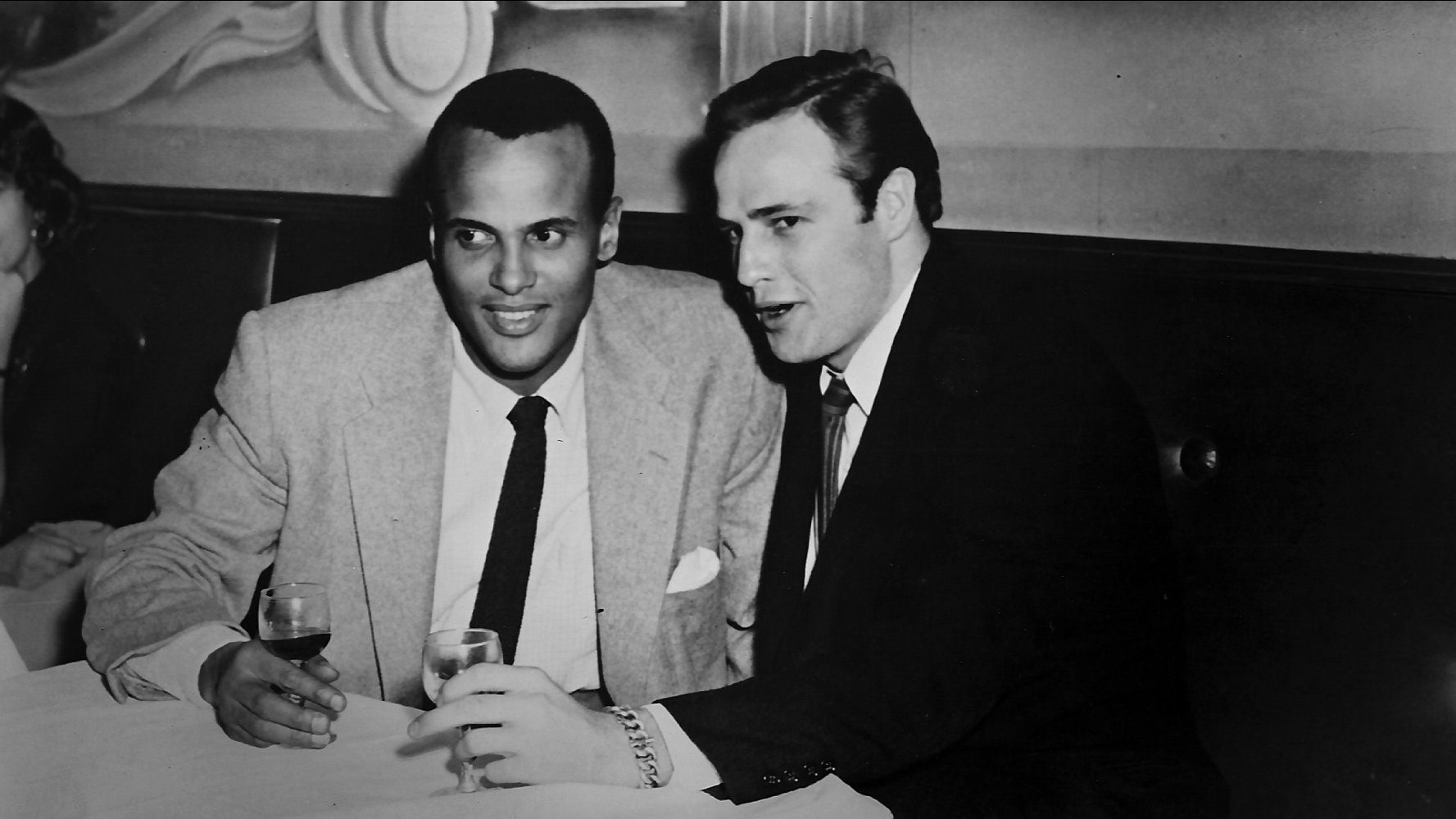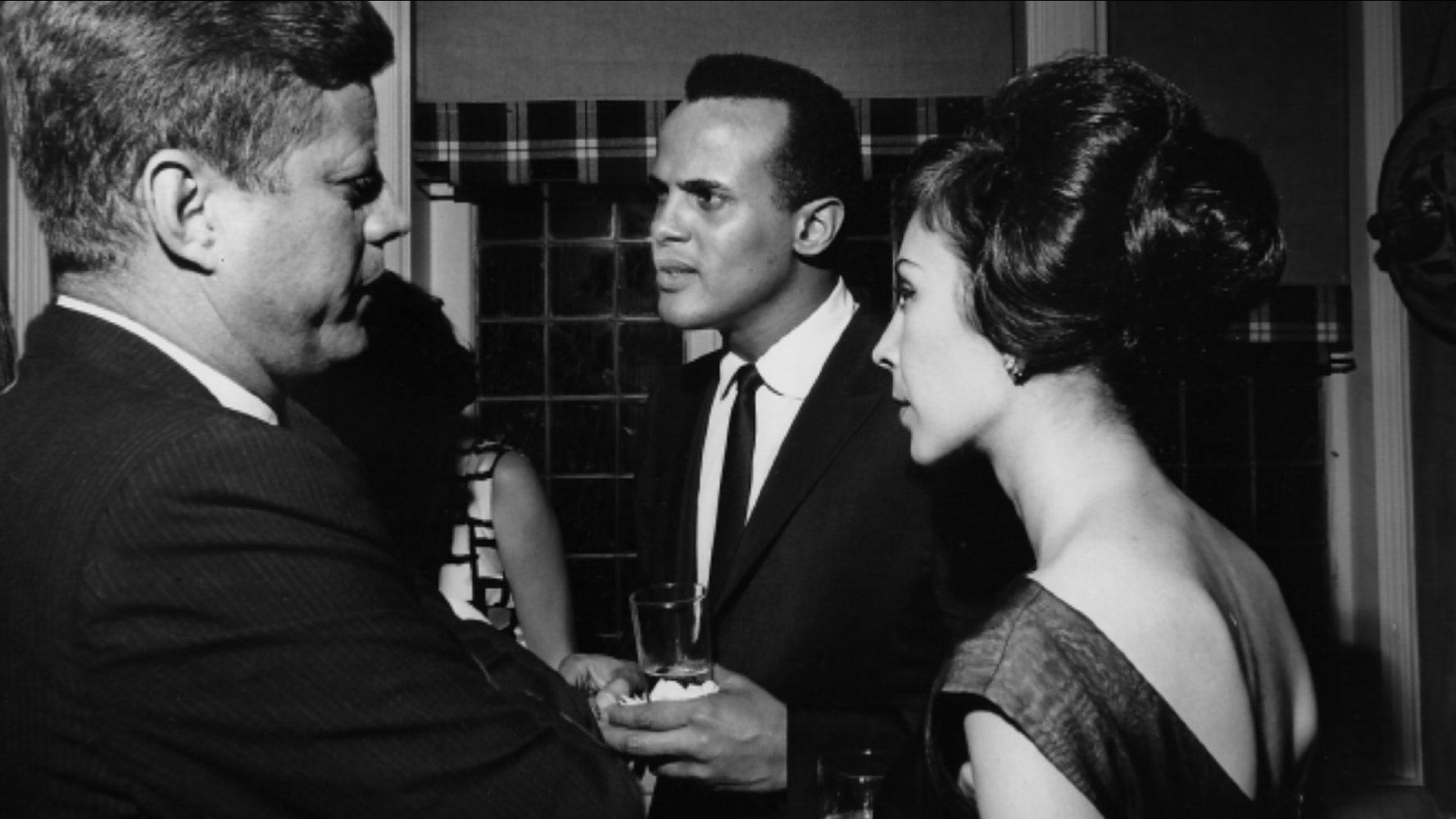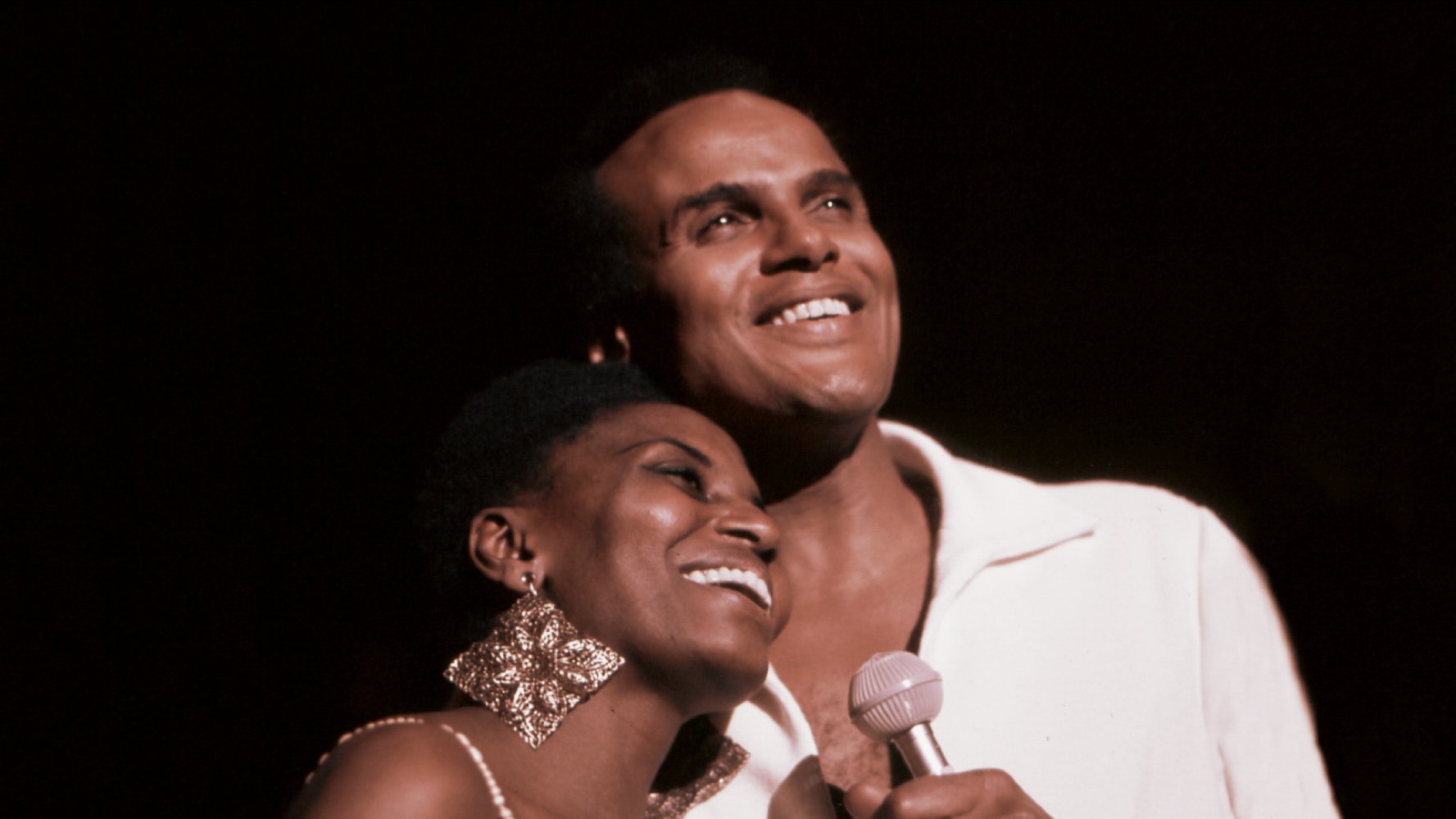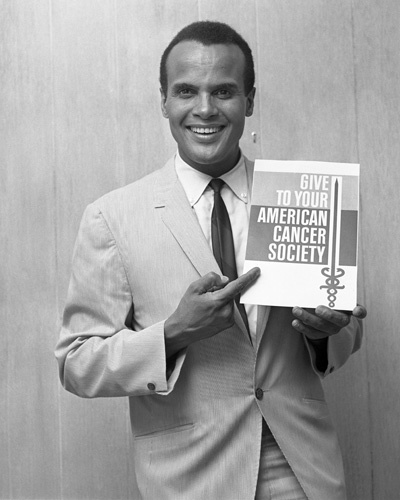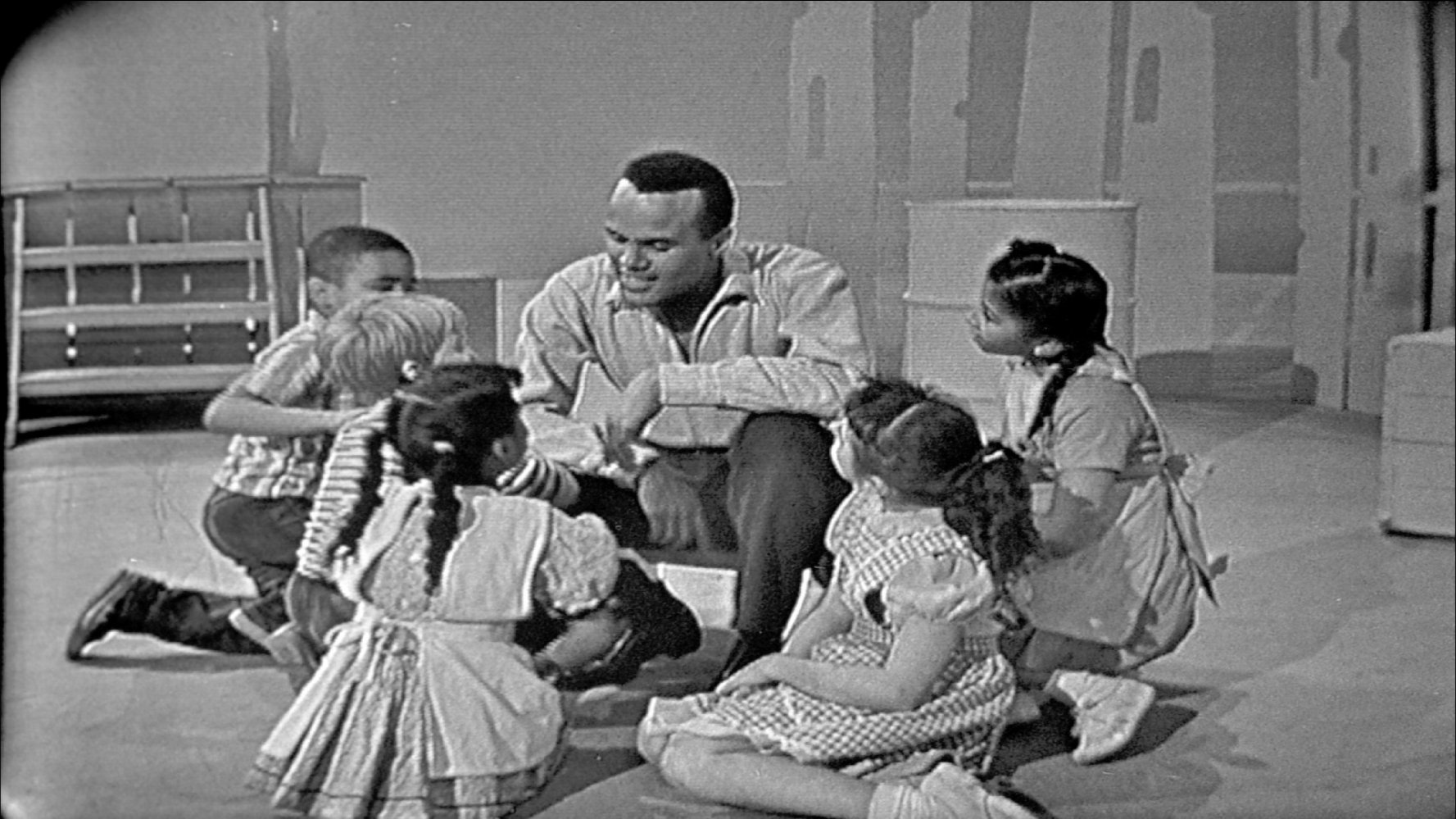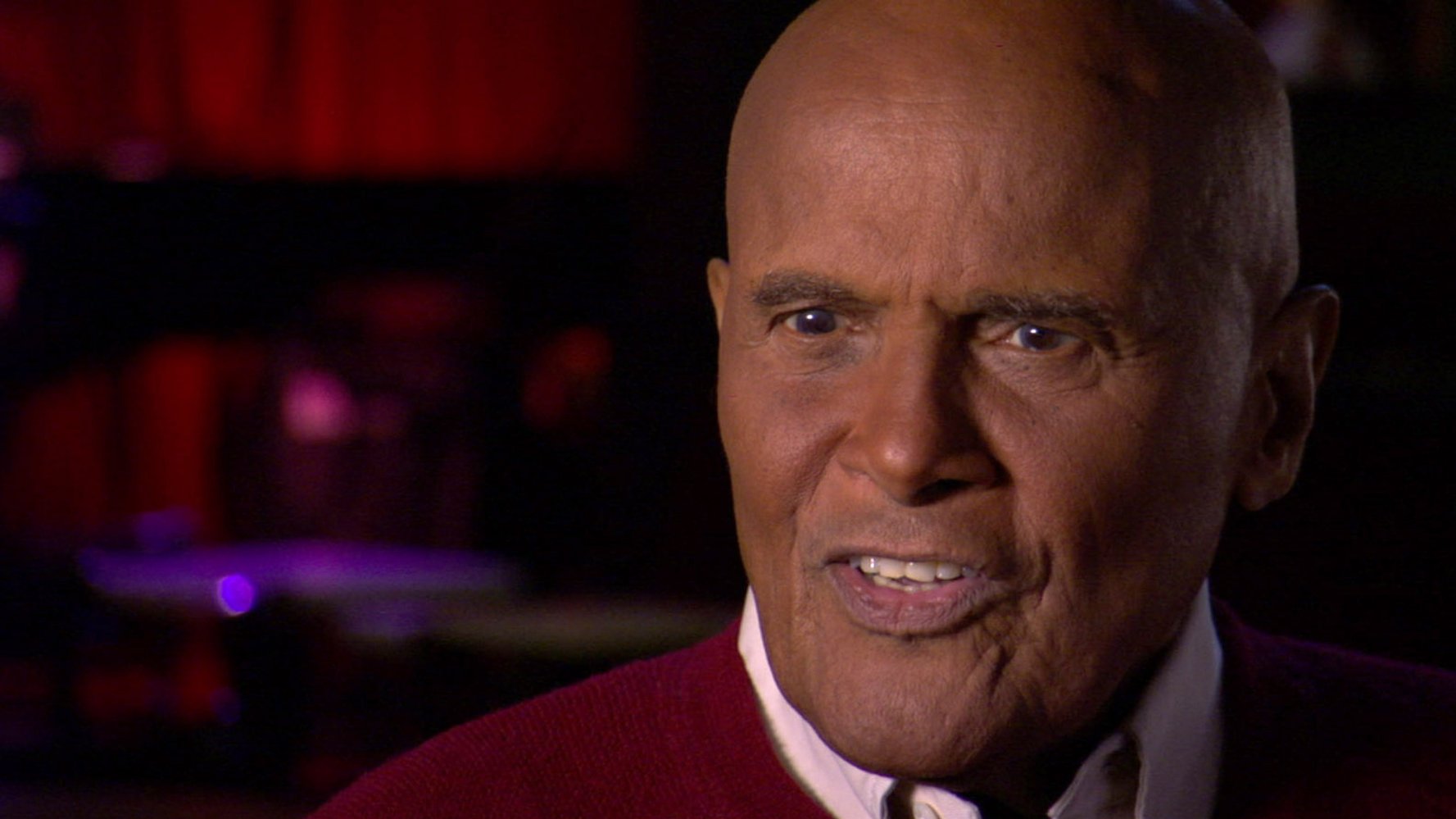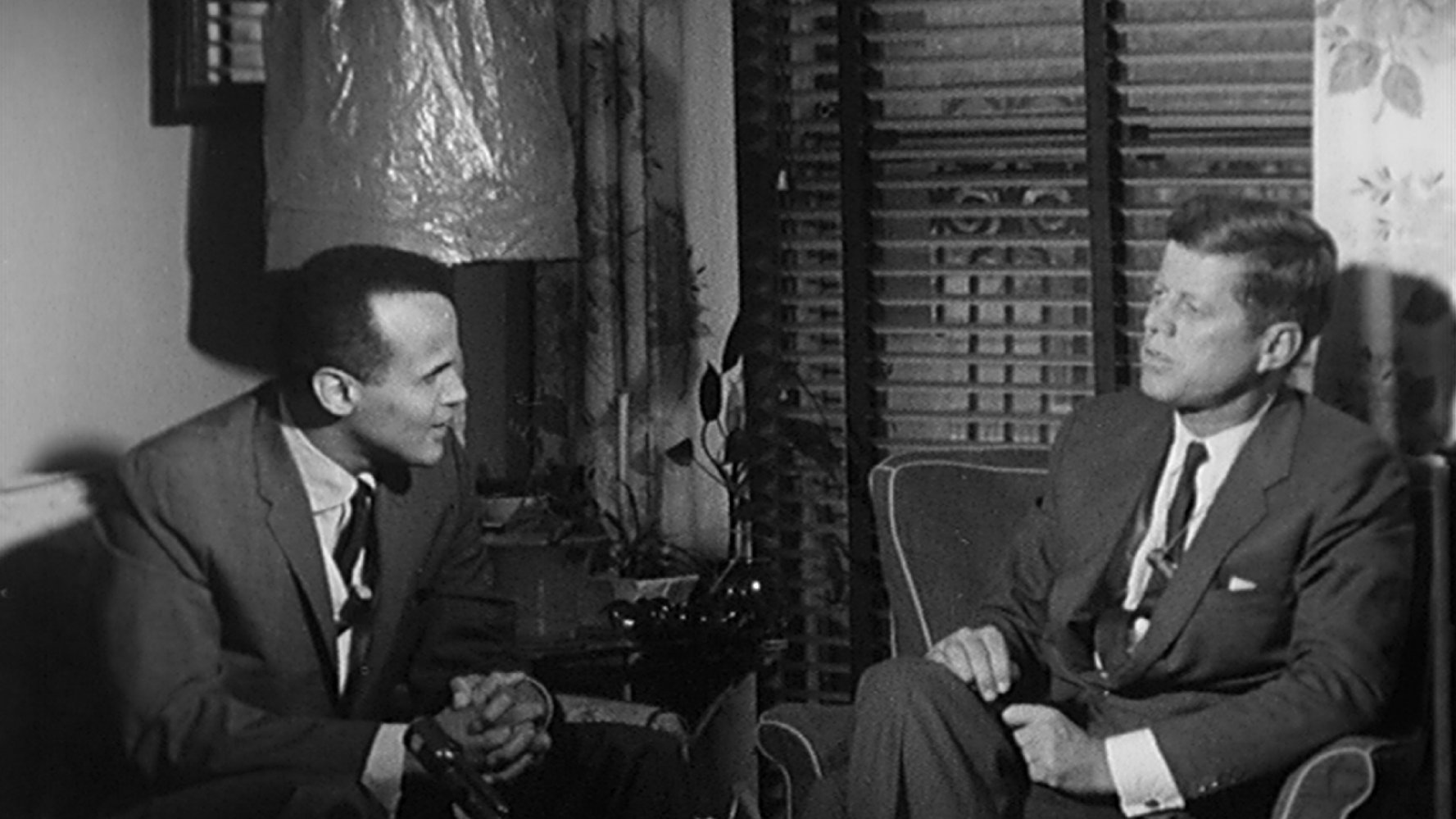
Harry Belafonte
Birthday: 1 March 1927, New York City, New York, USA
Birth Name: Harold George Belafonte Jr.
Height: 188 cm
Harold George Belafonte was born in New York City. He attended George Washington High School, where he was on the track team. In 1944 he left high school and joined the Navy. His wife, Julie Robinson, ...Show More
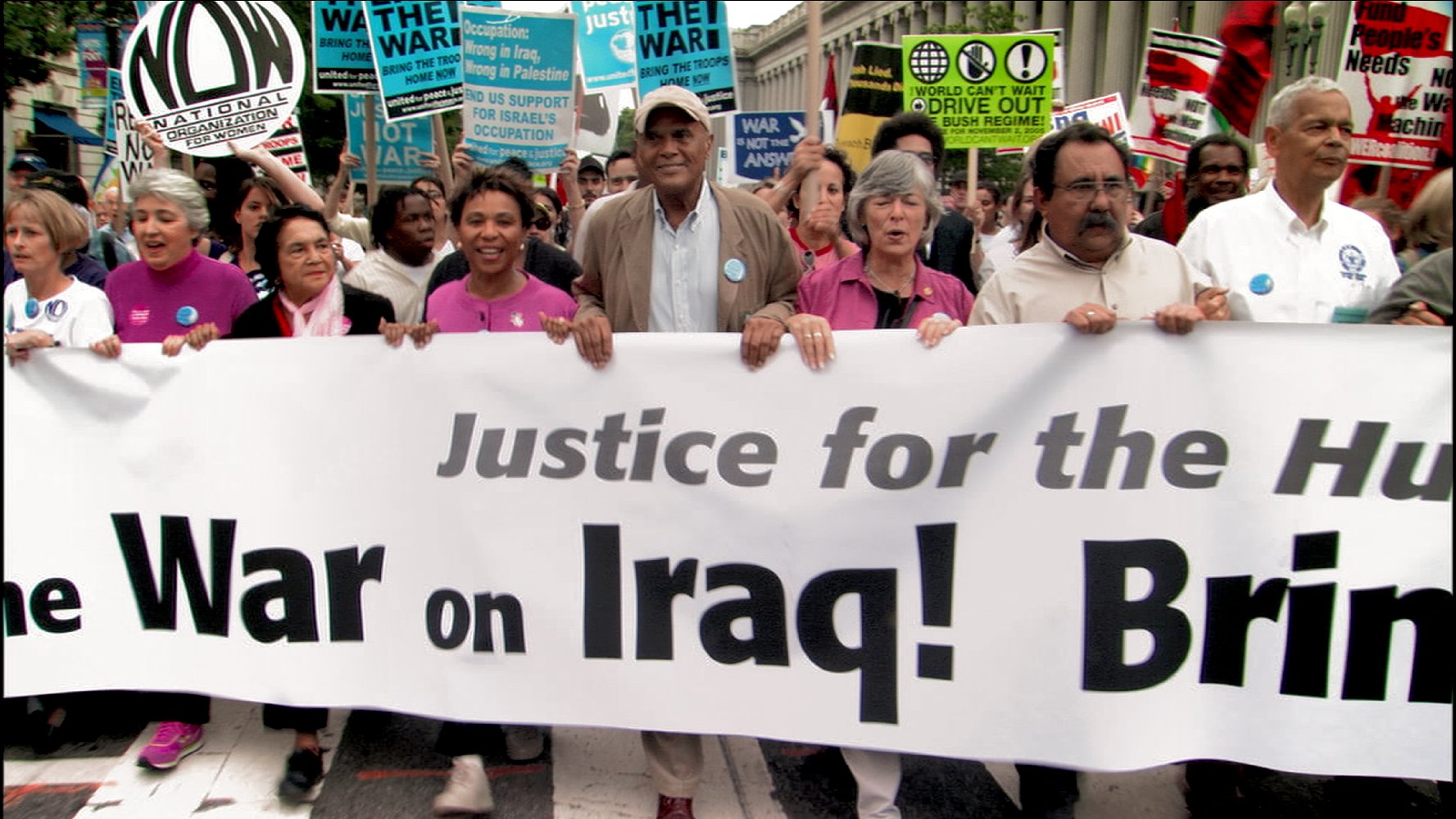
One of the things that made New York particularly complicated was that there were no laws in the sta Show more
One of the things that made New York particularly complicated was that there were no laws in the state or on the books that segregated its citizens. There was no law on the book that said, "A black person cannot live here. A black person cannot eat here. A black person cannot go to school here." It was all something we just understood. We didn't go below 110th Street. We didn't go north of 150th Street ... or 145th Street. We didn't go farther west than Riverside Drive-well, I guess there's not much farther to go there! And we didn't go farther east than the East River. That was our ghetto. Hide
I've always looked at the world and thought what can I do next? Where do we go from here? How can we Show more
I've always looked at the world and thought what can I do next? Where do we go from here? How can we fix it? And that's still how I look at the world, because there is so much to be done. The whole world is caught in human suffering. And those who professed about making change have not come up with answers. We have failed in terms of the moral side. We have to do more. Hide
On "Larry King Live (1985)," October, 2002, clarifying his comments on Colin Powell: "It is my perso Show more
On "Larry King Live (1985)," October, 2002, clarifying his comments on Colin Powell: "It is my personal feeling that plantations exist all over America. If you walk into South Central Los Angeles, into Watts, or you walk into Over-the-Rhine in Cincinnati, you'll find people who live lives that are as degrading as anything that slavery had ever produced. They live in economic oppression, they live in a disenfranchised way. In the hearts and minds of those people, and millions of others, you're always looking for hope, and whenever somebody within our tribe, within our group, emerges that has the position of authority and power to make a difference in the way business is done, our expectations run high. Many times, those expectations are not fulfilled. But when such an individual is in the service of those who not only perpetuate the oppression, but sometimes design the way in which it is applied, it then becomes very, very, very, very critical that we raise our voices and be heard." Hide
[on Harlem, 2011] One of the foremost things that we suffer from, for children, is the lack of model Show more
[on Harlem, 2011] One of the foremost things that we suffer from, for children, is the lack of models, of tangible role models. A lot of us, as kids, had no such problems. Because then, a lot of the achievers were also required to live in the middle of Harlem, or in the South Side of Chicago. 'Rich nigs' couldn't go anywhere. We saw Robeson. We saw Duke Ellington: he lived with us. Now, none of those heroic figures live in Bed-Stuy or the heart of Harlem. Now they live in Martha's Vineyard, Fire Island. In California, they live in Beverly Hills. Hide
When my mother gave birth to me, the city so terrified her-the intensity of it, the complicated way Show more
When my mother gave birth to me, the city so terrified her-the intensity of it, the complicated way people pass through people's lives-she thought the best thing to do was to take her children back to the Caribbean, let them be raised by the village, and then at some point bring them back to America. I stayed in the Caribbean from 1 and a half to 12. Hide
People from the Caribbean did not respond to America's repressions in the same way that black Americ Show more
People from the Caribbean did not respond to America's repressions in the same way that black Americans did. We were constantly in a state of rebellion, constantly in a state of thinking way above that which we were given. My people were gangsters and lived in the underworld. And I don't mean major American crime. I mean, as an immigrant, if you can't find work within the law, you find work outside the law. Running numbers and so on. Which is, of course, a characteristic of the poor, who find ways to break the rules, since the rules are always stacked against them. Hide
Knowing I was playing to an influential crowd, I'd snuck a little politics, with new lines for old s Show more
Knowing I was playing to an influential crowd, I'd snuck a little politics, with new lines for old songs, like 'Michael, Row the Boat Ashore': 'Mississippi on your knees, Hallelujah!/ Another bus is on the way, Hallelujah.' Hide
I believe that my time was a remarkable one. I am aware that we now live in a world overrun by cruel Show more
I believe that my time was a remarkable one. I am aware that we now live in a world overrun by cruelty and destruction, and as our earth disintegrates and our spirits numb we lose moral purpose and creative vision. But still I must believe, as I always have, that our best times lie ahead, and in the final analysis, along the way we will be comforted by one another. That is my song. Hide
[on first meeting Martin Luther King] He had said that we would take maybe twenty or thirty minutes Show more
[on first meeting Martin Luther King] He had said that we would take maybe twenty or thirty minutes to just talk. It was almost four hours when we finally broke for breath. Hide
In the days of slavery there were those slaves who lived on the plantation, in shacks out back, and Show more
In the days of slavery there were those slaves who lived on the plantation, in shacks out back, and those who lived in the master's house. You got the privilege of living in the house if you served the master well. When Colin Powell dares to suggest something other than what the master wants to hear, he will be turned back out to pasture. Hide
I was good as a singer, but I wasn't the best, and I'd known that from the start. I had to rely on m Show more
I was good as a singer, but I wasn't the best, and I'd known that from the start. I had to rely on my acting. And in the end I could make a case that I was the greatest actor in the world: I'd convinced everyone I could sing. Hide
Unless you have had the experience of sitting in a village in war-ravaged Guatemala, or a humble, bo Show more
Unless you have had the experience of sitting in a village in war-ravaged Guatemala, or a humble, box-like room in the wretched South African township of Alexandra, or in a dust-covered hovel on a Native American reservation, or in the tin shacks that house the thousands who live desperate lives in East Kingston Jamaica, or in an overcrowded, below-poverty-level dwelling in a Ghetto in New York, Chicago, or Detroit, among people whose lives are dominated by their bitter struggle for existence and some bit of dignity, unless you've seen from these places the looks on the faces of small children as they watched Sesame Street or the Muppets, you'll never really understand what Jim and his colleagues have done for millions of children all over the world, children who have never smiled, nor dared to dream, had it not been for Jim Henson. I come from those places; I know these faces. Through them I came to fully appreciate Jim. Hide
To me, faith as practiced all around me was blindly tied to religion, and religion was preachers in Show more
To me, faith as practiced all around me was blindly tied to religion, and religion was preachers in Harlem and Jamaica passing the hat for Jesus and driving off in fancy cars. It was nuns invoking the Christian spirit and rapping my knuckles with sticks. It was priests blessing Italian troops on the newsreels, sending them off to slaughter defenseless Ethiopians. I failed to see any good in the hypocrisy of that. Hide
No matter what the greatest tyrant in the world, the greatest terrorist in the world, George W. Bush Show more
No matter what the greatest tyrant in the world, the greatest terrorist in the world, George W. Bush, says, we're here to tell you: Not hundreds, not thousands, but millions of the American people support your revolution. - Remarks made to Venezuelan President Hugo Chávez in January 2006 Hide
[on planning for 'The March on Washington', August 28, 1963] In my instruction to my fellow artists Show more
[on planning for 'The March on Washington', August 28, 1963] In my instruction to my fellow artists when we met several times discussing strategy for what to do, I said, 'The more we can find ourselves in the heart of the people gathered at the event, the more we can be seen and identified with the everyday citizen, the more we are all linking arms together - not just celebrity to celebrity, but a truck driver, a dentist or a housewife - and we're all linking arms together, the more powerful that imagery becomes'. My task was to make sure that we salt-and-peppered the afternoon into the early evening to look that way. Hide
[on 'The March on Washington'] In the end, the day was a complete win-win. The Kennedys heaved a hug Show more
[on 'The March on Washington'] In the end, the day was a complete win-win. The Kennedys heaved a huge sigh of relief that there was not one act of violence. And to see at the end everybody singing 'We Shall Overcome' and all the arms linked - we've said it often, but it's worth saying as often as necessary - there wasn't a dry eye in the house. And it was all of America. All of it. You went through that crowd and you couldn't find any type missing, any gender, any race, any religion. It was America at its most transformative moment. Hide
We who came back from [World War II], having expectations and finding that there were none to be har Show more
We who came back from [World War II], having expectations and finding that there were none to be harvested, were put upon to make a decision. We could accept the status quo as it was beginning to reveal itself, with those repressive laws still in place. Or, as had begun to appear on the horizon, stimulated by something Mahatma Gandhi of India had done, we could start this quest for social change by confronting the state a little differently. Let's do it non-violently, let's use passive thinking applied to aggressive ideas, and perhaps we could overthrow the oppression by making it morally unacceptable. Hide
I wasn't an artist who became an activist. I was an activist who became an artist. Ever since my mot Show more
I wasn't an artist who became an activist. I was an activist who became an artist. Ever since my mother had drummed it into me, I'd felt the need to fight injustice wherever I saw it, in whatever way I could. Hide
Harry Belafonte's FILMOGRAPHY
as Actor (71)
 Harry Belafonte'S roles
Harry Belafonte'S roles

Jerome Turner

Geechie Dan Beauford














